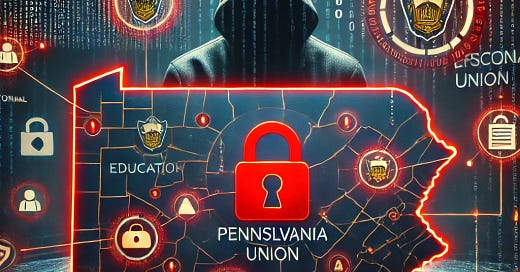Over 500,000 Impacted by Massive Data Breach at Pennsylvania’s Largest Education Union
Another wake-up call for data protection in public sector organizations
Why It's Important
This incident isn't just another data breach-it's a stark reminder of how deeply a single cyberattack can impact public institutions and everyday people. The Pennsylvania State Education Association (PSEA), representing over 187,000 education professionals, experienced a breach that compromised sensitive personal information of more than half a million individuals. From Social Security numbers to medical and financial details, the fallout is far-reaching and serious.
When large educational institutions are hit, the consequences ripple through schools, families, and entire communities. These types of breaches underline the growing need for stronger cybersecurity measures across all sectors-especially those entrusted with personal and sensitive data.
What Happened and How It Works
The breach reportedly occurred around July 6, 2024, but it wasn't until February 18, 2025, that the full extent of the damage became clear. That's when a comprehensive investigation confirmed that the data accessed by unauthorized actors included:
Full names
Financial and banking information
Health insurance and medical records
Social Security numbers (SSNs)
Taxpayer ID numbers
Driver's licenses and state-issued IDs
Passport details
Account PINs and credentials
Payment card information
Security codes
A total of 517,487 individuals were notified that their personal data had been compromised. According to PSEA's official notice, the exposed information was found across several files stored on its network, accessed without authorization.
While PSEA has not publicly confirmed the source of the attack, the Rhysida ransomware group claimed responsibility in September 2024. The group demanded a ransom of 20 BTC (roughly $1.12 million at the time) and threatened to leak the stolen data if their demands weren't met. Although PSEA hasn't revealed whether it paid the ransom, the data was eventually removed from Rhysida's leak site on the dark web-a possible indication of negotiation or compliance.
How to Reduce the Risk of This Happening to You
Whether you're part of a large organization or just someone whose data may be stored in one, it's crucial to take individual precautions. Here are some practical steps:
Monitor Your Credit and Accounts: Regularly check your credit reports and financial statements. Set up alerts for unusual activity.
Use Identity Monitoring Services: If your Social Security number or other sensitive data is exposed, sign up for services that track misuse and alert you immediately.
Enable Two-Factor Authentication (2FA): On any account that supports it-especially email, banking, and healthcare platforms-enable 2FA to prevent unauthorized access.
Use a Password Manager: Strong, unique passwords for every account help reduce risk. A password manager can help you keep track.
Stay Informed: Subscribe to breach notification services like Have I Been Pwned or use tools that track your data exposure across the internet.
How to Use Identity Monitoring Tools Effectively
PSEA offered affected members complimentary identity theft protection and credit monitoring services, particularly for those whose SSNs were exposed. This is a solid first step-but even if you weren't part of this breach, you can (and should) take action.
Tools like Bitdefender Digital Identity Protection, MalwareBytes or Aura provide a bird's-eye view of your online exposure. They work by scanning both public-facing sites and the dark web, then notifying you if your information appears where it shouldn't. The key is to act immediately when alerted-change passwords, freeze credit, or report suspicious activity before things escalate.
One Standout Detail: The Long Delay in Notification
What stands out in this incident is the nearly eight-month delay between the suspected breach date (July 6, 2024) and the completion of the investigation (February 18, 2025). During that time, sensitive information could have been exploited or sold, putting half a million people at greater risk.
This underscores the importance of real-time breach detection and response. Organizations must move faster-not just to contain breaches, but to inform the people affected.
Don't Wait for the Next Breach
Whether you're a public employee, private citizen, or organization leader, incidents like the PSEA breach are a warning: protecting data isn't optional anymore. Threats like Rhysida are becoming more aggressive, and delay in response can have real-life consequences.
If you're concerned about your overall online privacy and want a personalized assessment of your potential risks, you can schedule a free privacy consultation here




